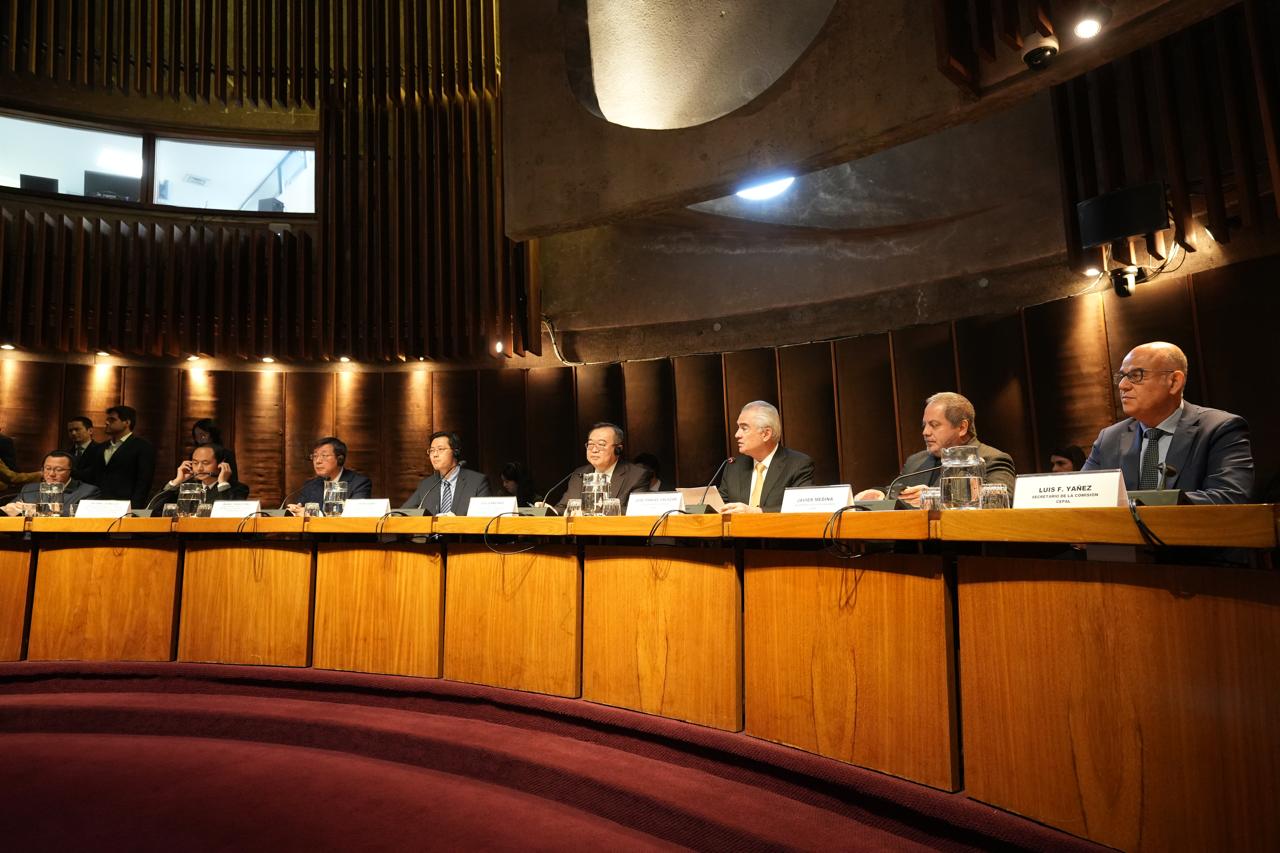Relations with China are Important for Latin America and the Caribbean to Move Towards More Productive, Inclusive and Sustainable Development
At a seminar organized by ECLAC and China’s Embassy in Chile, the regional organization’s Executive Secretary, José Manuel Salazar-Xirinachs, stressed the importance of the strategic and historical relationship between the region and the Asian country.

The Executive Secretary of the Economic Commission for Latin America and the Caribbean (ECLAC), José Manuel Salazar-Xirinachs, stressed the importance today of the strategic and historical relationship between China and the countries of Latin America and the Caribbean, during a high-level international seminar held at the United Nations regional commission’s main headquarters in Santiago, Chile.
“The region is immersed in a trap of low growth capacity, from which it must urgently escape. ECLAC recommends that countries energize and redirect their economic growth, making it not only higher and more sustained, but also more inclusive and sustainable, through a major productive transformation. Given the importance of China in economic relations with the region, and its expected future growth, there is no doubt that relations between both sides, both on matters of trade, infrastructure construction, FDI flows and financing, as well as technological cooperation, can make an important contribution to achieving these goals,” the senior official affirmed.
The seminar “Chinese Modernization and Opportunities for Chile and Latin America and the Caribbean” was organized by ECLAC and the Embassy of the People’s Republic of China in Chile, on the occasion of a visit by Liu Jianchao, Minister of the International Department of the Communist Party of China’s Central Committee.
In his remarks, Minister Liu Jianchao thanked ECLAC for supporting the comprehensive strategic cooperation between China and the region in economic and trade matters, “which is a very important thing for strengthening the ties between both parties.”
“As one of the five UN regional commissions, ECLAC has made an important contribution to the socioeconomic development of the countries of Latin America and the Caribbean,” he underscored.
The seminar featured a panel on which senior officials from the People’s Republic of China analyzed their country’s modernization process, the policy of decentralization, and their vision regarding the relationship with Latin America and the Caribbean, among other topics.
In his opening remarks, José Manuel Salazar-Xirinachs expressed his deep gratitude to the Embassy of the People’s Republic of China for thinking of ECLAC as the venue for carrying out this important activity.
“This seminar addresses China’s extraordinary modernization process and its impacts, which in general have been and will continue to be positive in the Latin America and Caribbean region,” he stated.
The senior United Nations official emphasized that relations between the countries of Latin America and the Caribbean and China are growing at a fast clip. He specified that trade between the region and China increased 35 times over in value in the last two decades: in the year 2000, bilateral trade barely topped $14 billion dollars, while in 2022 it approached $500 billion dollars.
He added that China has displaced the European Union as the region’s second-biggest trading partner and is the most important export market for South America, while Latin America and the Caribbean is China’s fourth-largest trading partner.
He further noted that in the region, Chile (2005), Peru (2009), Costa Rica (2011), Nicaragua and Ecuador (2024) have signed free trade agreements with China, and negotiations with Honduras are underway.
In addition, under the Belt and Road initiative, between 2015 and this year, nearly 200 megaprojects worth more than $100 billion dollars were implemented by China in diverse sectors in the region.
José Manuel Salazar-Xirinachs urged the region’s countries to improve the pattern of specialization in trade with China and increase technological sophistication and the value-added of exports to China, as part of their productive development policies.
“This is both a major challenge as well as a major opportunity,” he declared.
Finally, ECLAC’s Executive Secretary reiterated the organization’s commitment to continue facilitating and supporting relations between the People’s Republic of China and the region’s countries.
The participants in this event included prominent Chilean authorities, such as former President of the Republic Eduardo Frei Ruiz-Tagle and the Defense Minister, Maya Fernández.
Type
Country(ies)
- Latin America and the Caribbean